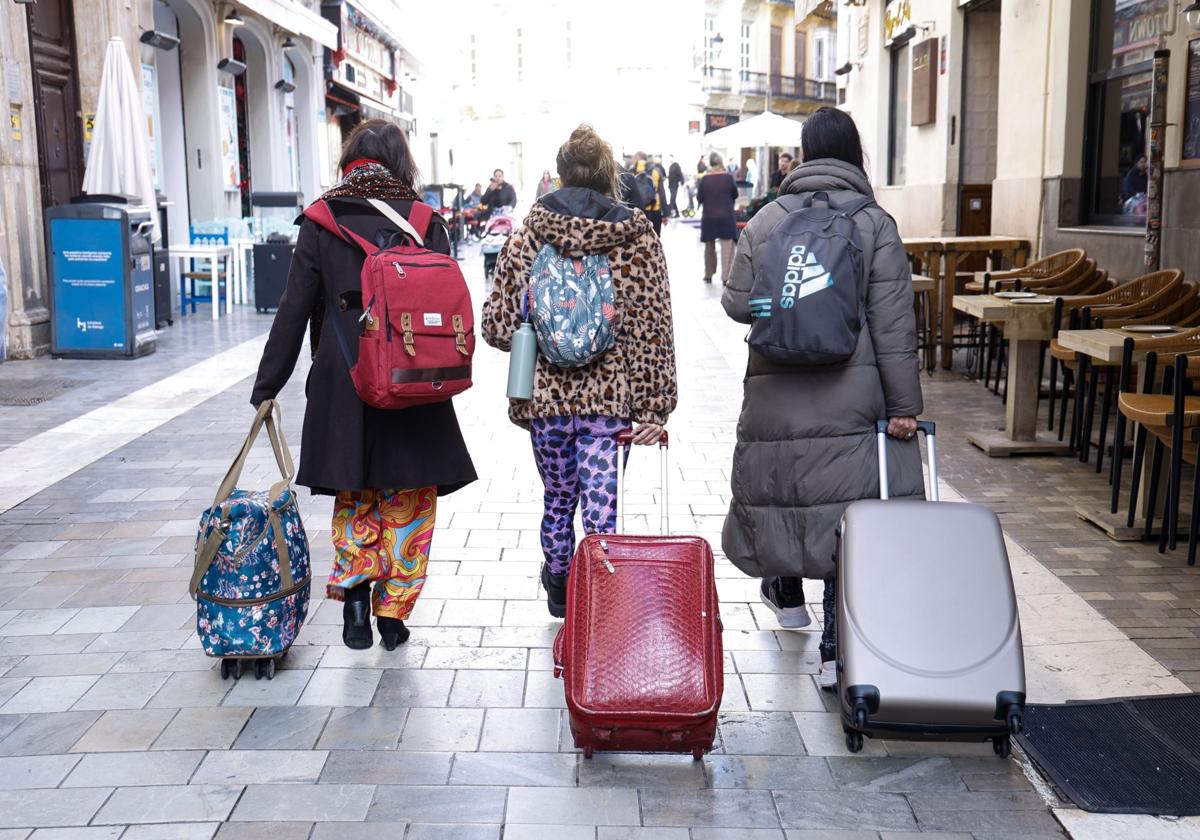Costa del Sol records holiday booking slowdown among Spanish tourists
This contrasts with the tourism boom registered among international holidaymakers with an increase of 1.5 million stays in Malaga province in the first 10 months of the year
People living in Spain are overlooking the Costa del Sol and choosing to holiday elsewhere with the destination registering half a million fewer domestic tourists in the first ten months of this year.
The slowdown, in what is the main market for the tourism industry, has become one of the major concerns for those in the sector, along with issues in finding workers, exacerbated by difficulties in acquiring or renting housing. The fall in domestic tourism is not limited to hotels, and is even greater in the case of rural tourism and tourist flats.
All accommodation in Malaga province registered a loss of more than half a million overnight stays by Spanish tourists between January and October compared to the same period in 2023, according to data from Spain's INE national institute of statistics, collected by Turismo Costa del Sol in its monthly reports.
The slowdown is the first time such a trend has happened in the past five years, in which every year Spaniards have become a mainstay in Malaga province, particularly during high season. It has been from this summer onwards that the lack of national tourists has become evident in the province, deepening its mark in the peak months to the point that between June and August alone the loss of Spanish tourists exceeded 905,000 stays.
However, the crisis among Spanish tourists has been progressing, including a 17% drop in stays by Spaniards in October compared to the same period the previous year and in all accommodation, without counting tourist apartments, for which the INE has no activity records.
According to the statistics, in the first 10 months of the year, the number of tourists visiting apartments has reduced by around 8%, and the volume of nights booked by 571,000. This contrasts with the tourism boom registered among international holidaymakers with an increase of 1.5 million stays.
The loss of market share in the national market is felt the most in rural tourism, with a drop of up to 47% in nights booked by Spaniards up to October compared to the same period last year, according to data from Turismo Costa del Sol.
Neither are hotels spared from this slowdown, registering a drop of 5.3%. Only campsites have managed to avoid the crisis, instead registering an increase of 3.2% more domestic tourists.
Causes
Experts have pointed out the three main reasons for the slowdown in Spanish tourists: a decline in the economic capacity of families to travel; the increase in accommodation prices; and the impact of rising temperatures along the Costa del Sol.
Costa del Sol hotels association Aehcos vice-president Javier Hernández said the main reason is the economic situation. He pointed out the increase in inflation in recent years, with peaks of 5.6% in 2022, leading to increases in the price of groceries, as well as rises in interest rates that have led to a significant increase in mortgage payments.
The effect of a registered 40% increase in hotel room rates with data from last October compared to the same period in 2019, with hotel accommodation prices in the province soaring from an average of 88 euros five years ago to the current average rate of 124 euros reported by the INE, is another of the reasons discouraging Spaniards. However, Hernández said, "Everything has gone up. We don't like to talk about prices, but about the general economic impact. The increase in rates in hotels has been balanced throughout Spain."
Lower spending power, higher accommodation prices and heatwaves are the main causes
Hernández said Spanish people are opting for more affordable destinations both within Spain and abroad. "The decline began in July and went even further in August, to which must be added the fact that Easter was very bad for tourism although good for the province because the rains were the protagonist at a time when the drought was a cause for concern," he said. Statistics confirm this claim with data showing that between June and August alone, hotels in Malaga province lost a total of 905,310 stays by Spanish tourists.
Hernández also blamed a slowdown in Spanish tourists on soaring summer temperatures. Enrique Salvo Tierra, director of the chair in climate change at Malaga University, also pointed this out. He said the deterioration of climate comfort produced by the increase in temperatures both at sea and on land, longer summers with an average of 21 degrees, and the increase in heatwaves and their duration "is causing Spaniards to look towards other cooler destinations". "We have to assume that the tourist movement tends to shift in summer to other less hot areas. More and more people will be fleeing to the north and, for this reason, it is essential to be aware of the need to adapt the municipalities and the province as a whole to reduce the impact of this loss of climatic comfort," he added.
"What is most worrying is the increase of minimum temperatures, going from having warm nights to more tropical ones, with temperatures of 35C. And with this level of heat, you can neither rest nor be comfortable on any of those terraces that tourists like so much," Salvo Tierra added.
Rural tourism is the sector most affected by this slowdown. Felix Zea, chief executive of the largest rural tourism platform in Andalucía, the Malaga-based Ruralidays, said that the slowdown of Spanish tourists is due to the effect of inflation and the rise of international tourists. He also added that the drought and uncertainty about opening swimming pools in summer has also contributed to the slowdown.
So far this year there have been periods in which national tourism has reduced its share to 25%, when it is usual to be between 35 and 40%, the vice-president of Aehcos said, before adding that more promotion of the Costa del Sol must occur across the country to regain the Spanish market.

